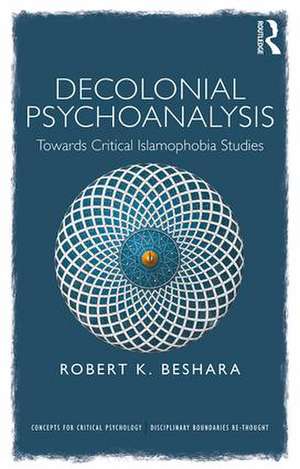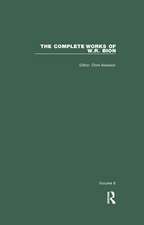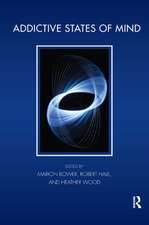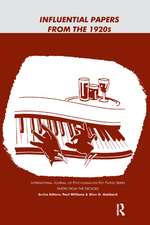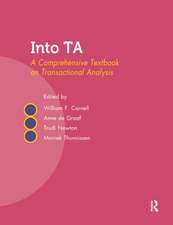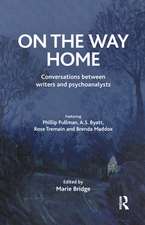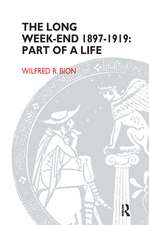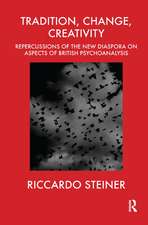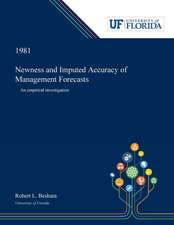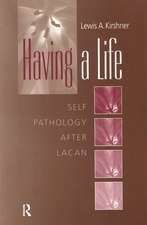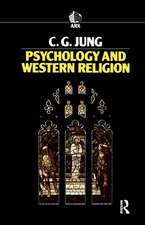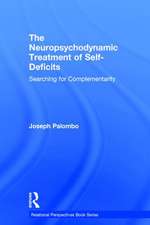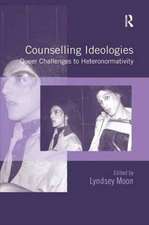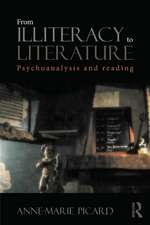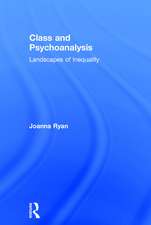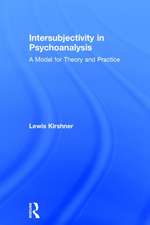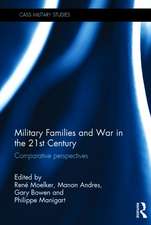Decolonial Psychoanalysis: Towards Critical Islamophobia Studies: Concepts for Critical Psychology
Autor Robert Besharaen Limba Engleză Paperback – apr 2019
UsingacriticaldecolonialpsychologyapproachtoconceptualizeeverydayIslamophobia,theauthorexaminestheoreticalresourcessituatedwithinthediscursiveturn,suchasdecoloniality/transmodernity,andcarriesoutanarchaeologyof(counter)terrorism,agenealogyoftheconceptualMuslim,andaZizekianideologycritique.ConceivingofDecolonialPsychoanalysisasonetheoreticalresourceforCriticalIslamophobiaStudies(CIS),theauthoralsoappliesLacanianDiscourseAnalysistoextractsfrominterviewsconductedwithUSMuslimstotheorizetheirethico-politicalsubjectivityandconsidersapoliticsofresistance,adversarialaesthetics,andethicsofliberation.
Essentialtoanyattempttocometotermswiththelegacyofracisminpsychology,andtheonlycriticalpsychologicalstudyonIslamophobiaintheUS,thisisfascinatingreadingforanyoneinterestedinacriticalapproachtoIslamophobia.
| Toate formatele și edițiile | Preț | Express |
|---|---|---|
| Paperback (1) | 345.89 lei 6-8 săpt. | |
| Taylor & Francis – apr 2019 | 345.89 lei 6-8 săpt. | |
| Hardback (1) | 886.63 lei 6-8 săpt. | |
| Taylor & Francis – 26 mar 2019 | 886.63 lei 6-8 săpt. |
Din seria Concepts for Critical Psychology
-
 Preț: 295.98 lei
Preț: 295.98 lei - 5%
 Preț: 273.42 lei
Preț: 273.42 lei -
 Preț: 110.27 lei
Preț: 110.27 lei -
 Preț: 278.26 lei
Preț: 278.26 lei -
 Preț: 301.30 lei
Preț: 301.30 lei -
 Preț: 287.65 lei
Preț: 287.65 lei - 5%
 Preț: 264.67 lei
Preț: 264.67 lei -
 Preț: 294.41 lei
Preț: 294.41 lei -
 Preț: 294.72 lei
Preț: 294.72 lei -
 Preț: 285.94 lei
Preț: 285.94 lei -
 Preț: 191.23 lei
Preț: 191.23 lei - 18%
 Preț: 995.54 lei
Preț: 995.54 lei -
 Preț: 358.19 lei
Preț: 358.19 lei - 18%
 Preț: 1000.27 lei
Preț: 1000.27 lei -
 Preț: 387.65 lei
Preț: 387.65 lei - 5%
 Preț: 363.52 lei
Preț: 363.52 lei - 18%
 Preț: 999.12 lei
Preț: 999.12 lei -
 Preț: 347.76 lei
Preț: 347.76 lei -
 Preț: 348.18 lei
Preț: 348.18 lei - 17%
 Preț: 236.10 lei
Preț: 236.10 lei -
 Preț: 416.22 lei
Preț: 416.22 lei -
 Preț: 358.19 lei
Preț: 358.19 lei -
 Preț: 358.56 lei
Preț: 358.56 lei - 18%
 Preț: 993.49 lei
Preț: 993.49 lei -
 Preț: 361.08 lei
Preț: 361.08 lei - 18%
 Preț: 1157.34 lei
Preț: 1157.34 lei - 18%
 Preț: 1109.18 lei
Preț: 1109.18 lei - 18%
 Preț: 1106.02 lei
Preț: 1106.02 lei - 18%
 Preț: 1010.95 lei
Preț: 1010.95 lei -
 Preț: 363.20 lei
Preț: 363.20 lei - 20%
 Preț: 242.61 lei
Preț: 242.61 lei - 18%
 Preț: 993.97 lei
Preț: 993.97 lei -
 Preț: 361.08 lei
Preț: 361.08 lei -
 Preț: 364.10 lei
Preț: 364.10 lei -
 Preț: 344.90 lei
Preț: 344.90 lei
Preț: 345.89 lei
Nou
66.19€ • 69.24$ • 54.98£
Carte tipărită la comandă
Livrare economică 02-16 aprilie
Specificații
ISBN-10: 0367174138
Pagini: 174
Ilustrații: 20 Line drawings, black and white; 20 Illustrations, black and white
Dimensiuni: 138 x 216 x 10 mm
Greutate: 0.2 kg
Ediția:1
Editura: Taylor & Francis
Colecția Routledge
Seria Concepts for Critical Psychology
Locul publicării:Oxford, United Kingdom
Public țintă
Postgraduate and UndergraduateCuprins
PREFACE
SERIES EDITOR FOREWORD
ACKNOWLEDGMENTS
1. THEORIZING AND RESEARCHING ISLAMOPHOBIA/ISLAMOPHILIA IN THE AGE OF TRUMP
2. THE MASTER’S DISCOURSE: AN ARCHEOLOGY OF (COUNTER)TERRORISM AND A GENEALOGY OF THE CONCEPTUAL MUSLIM
3. THE UNIVERSITY DISCOURSE: THE PSYCHOLOGIZATION OF ISLAMOPHOBIA
4. THE HYSTERIC’S DISCOURSE: EPISTEMIC RESISTANCE, OR US MUSLIMS AS ETHICAL SUBJECTS
5. THE ANALYST’S DISCOURSE: ONTIC RESISTANCE, OR US MUSLIMS AS POLITICAL SUBJECTS
6. TOWARDS A RADICAL MASTER: FROM DECOLONIAL PSYCHOANALYSIS TO LIBERATION PRAXIS
REFERENCES
Notă biografică
Descriere
In this provocative and necessary book, Robert K. Beshara uses psychoanalytic discursive analysis to explore the possibility of a genuinely anti-colonial critical psychology. Drawing on postcolonial and decolonial approaches to Islamophobia, this book enhances understandings of Critical Border Thinking and Lacanian Discourse Analysis, alongside other theoretico-methodological approaches.
Using a critical decolonial psychology approach to conceptualize everyday Islamophobia, the author examines theoretical resources situated within the discursive turn, such as decoloniality/transmodernity, and carries out an archeology of (counter)terrorism, a genealogy of the conceptual Muslim, and a Zizekian ideology critique. Conceiving of Decolonial Psychoanalysis as one theoretical resource for Critical Islamophobia Studies (CIS), the author also applies Lacanian Discourse Analysis to extracts from interviews conducted with US Muslims to theorize their ethico-political subjectivity and considers a politics of resistance, adversarial aesthetics, and ethics of liberation. Essential to any attempt to come to terms with the legacy of racism in psychology, and the only critical psychological study on Islamophobia in the United States, this is a fascinating read for anyone interested in a critical approach to Islamophobia.
